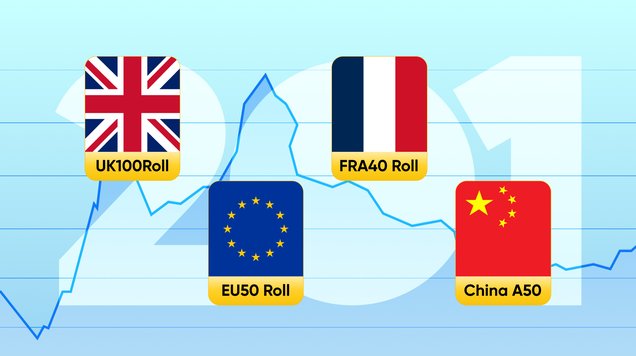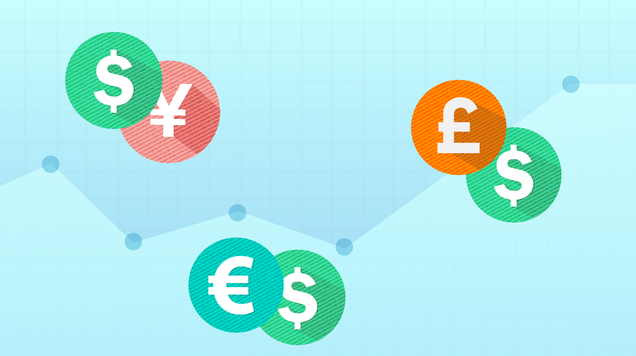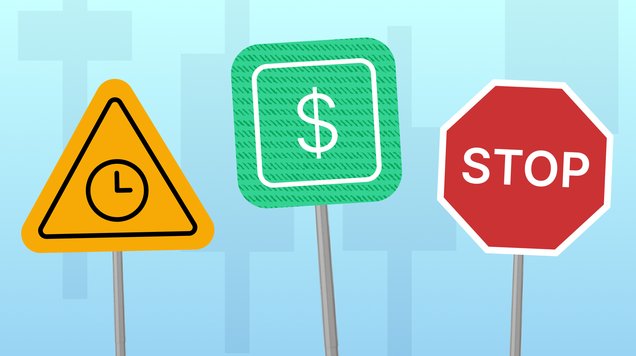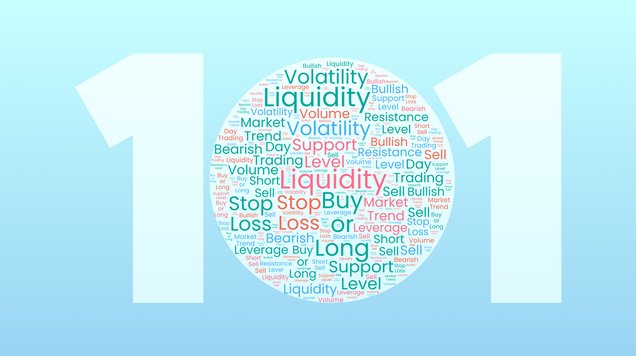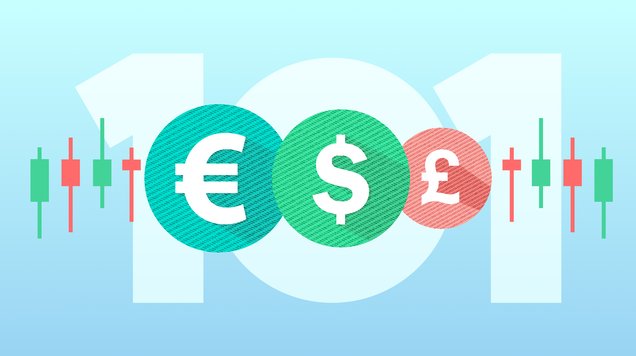Stocks 101
Read our guide to stock trading and learn how to start exploring financial opportunities in global markets.
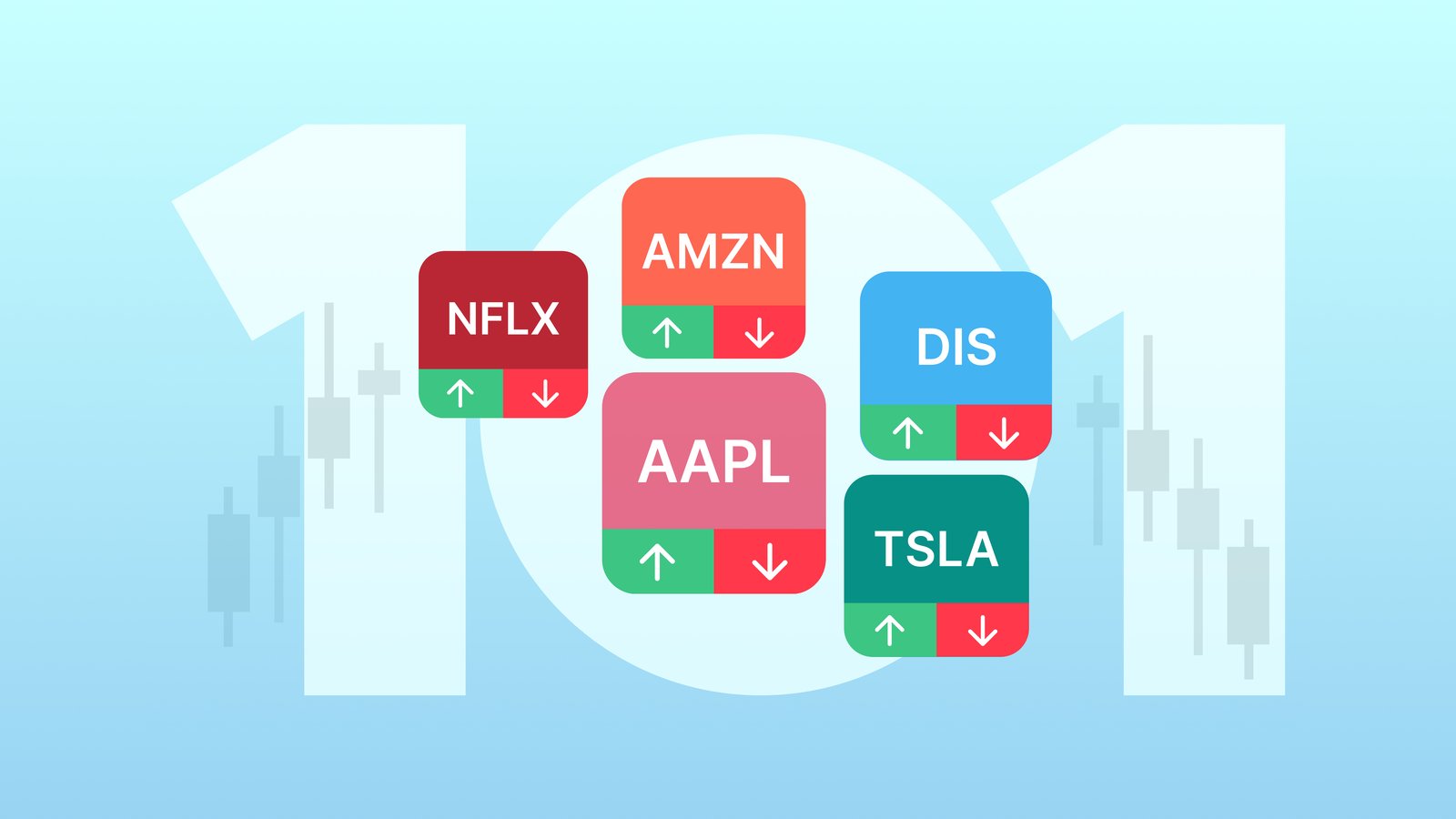
Stock market refers to a financial marketplace where stocks (or shares) of publicly-listed companies are traded
A stock, also called a share or equity, means a piece of ownership in a company
Companies sell stocks (or shares) to raise capital, and investors will purchase them to allow themselves to take a share of the company’s profits
In CFD shares trading, profit can be made when the price of an asset rises or falls, as you are trading on the share’s price instead of owning the actual share
An introduction to stock markets
A stock, also called a share or equity, means a piece of ownership in a company. The stock market refers to a marketplace where companies, investors and the general public sell and buy stocks of publicly-listed companies.
There are different ways to buy stocks. They can be bought in an initial public offering, or IPO, when a company sells them to investors to raise funds. Stocks can also be traded between investors in a secondary market. This means that investors who originally bought the stocks from a company can sell them to other interested investors. Stocks can be traded in stock exchanges or over-the-counter (OTC) markets.
Stock exchanges are centralised marketplaces that function as primary and secondary markets. A ‘centralised marketplace’ means that all trades are reported to the central entity and all the participants in the market have access to the same stocks at the same price. Major stock exchanges include New York Stock Exchange (NYSE), Nasdaq (the US tech-focused exchange), and the London Stock Exchange (LSE).
An OTC market is decentralised “over-the-counter” marketplace where stocks are traded between private counterparties, such as retail brokers and independent traders. One of the main differences compared to stock exchanges is that in the OTC market providers can present assets at their own selected price.
Investors buy stocks often with the expectation that they can be later sold at a higher price to make profit. Depending on the company’s performance, shareholders may also receive dividends if the company decides to distribute profits.
What are shares CFDs
Shares CFD trading refers to buying and selling CFDs on stocks of publicly-listed companies. A CFD, or a contract for difference, is a contract between a trader and a broker to speculate on the price change of a stock.
Traders predict future movements of the company’s stock price and collect profit if their predictions are successful. Shares CFDs don’t give any ownership over the company or right to dividends, as traders don’t directly own the underlying asset and are available for a large variety of companies from different industries and regions. The US, UK and EU stock markets are among the most popular markets for stock traders.
There are different types of CFDs, such as spot and futures CFDs. Spot contracts don’t have an expiry date, which means the positions stay open until the trader decides to close them - or insufficient funds in a trading account automatically trigger the position to close out. Futures contracts usually have an expiry date, meaning that the position will be closed at the predefined date for a price that has been agreed when the contract was made.
Shares CFD trading is usually leveraged which means traders can control bigger trading volumes whilst investing only a small margin (i.e., deposit). For example, if the leverage is 1:20, it means by investing $100, you can place a trade worth $2,000. The leverage offered depends on the product and the broker and offers an investor the opportunity to control a larger trading volume instead of increasing their actual deposit.
Both profit and loss are calculated based on the whole size of the trade, not just the invested margin. Therefore, using leverage allows bigger profits but it’s important to remember that it also exposes traders to bigger losses. When using leverage, always consider how much capital you are willing to risk.
Benefits of trading shares CFDs
If you are interested in investing in stocks, why should you try trading shares CFDs? Let’s explore some of the main benefits:
Easily accessible online
Shares CFDs are traded on online trading platforms and are easily accessible online to anyone with internet connection and a computer or mobile device. However, CFD trading may be subject to restrictions in some countries so make sure you open an account with a regulated broker.
Ability to go long or short
With investing, you can only make profit if the price of a stock rises. CFD trading allows you to profit from falling prices as well - if you predict the market movements correctly. When opening a trade you can choose a long position, predicting the price will rise, or short position, anticipating a decrease in the price.
Cost-effective way to enter financial markets
Trading shares CFDs is a more cost-effective way to access the stock market than investing in stocks directly. Depending on the company, buying stocks can require a lot of initial capital to get started. Because of leverage, you can trade stocks from some of the world’s top companies and explore financial opportunities at a fraction of their full price.
Potential for bigger profits
Leverage presents a potential for bigger profits but equally losses as well. Compared to investing in stocks by directly buying them, there is a possibility to make higher profits with CFD trading as leverage allows you to control bigger trade sizes. Choosing a trading strategy that focuses on finding opportunities in quick price movements can also provide profits faster than in investing.
Trading plan and risk management for shares CFDs
When you invest money, there are always risks included. Market analysis, trading plan and risk management tools are crucial for all CFD traders as they help to make smarter trading decisions and limit the risk of losing investment capital.
Market analysis means collecting and analysing data to understand how the markets behave and what can be expected to happen next. There are different approaches to market analysis, the most popular ones being technical, fundamental and sentimental. Traders can benefit from combining different analysis styles to get a more comprehensive overview of the market that they are about to enter.
Creating a trading plan before starting to place live trades helps you to build a routine and keep focus on your goals. Your trading plan should include your goals, trading style and trading strategies. Your trading plan doesn’t have to and shouldn’t always stay the same, but you can modify it if your goals change and after testing different strategies and tools.
Another important thing for CFD traders is risk management. Risk management strategies and tools help reduce risk in your trades and limit how much capital is exposed to loss. Stop loss order is one of the most popular tools used by traders to protect their investment capital against the unexpected market moves. With stop loss order, a trade will automatically be closed to limit loss if asset’s price takes an unfavourable move.
Your risk management plan should include several tools and strategies. In addition to stop loss order, diversification and hedging are popular tools to control the risk exposure of your trades. Creating a diversified portfolio by mixing volatile stocks with more stable options and choosing companies from different industries will help you maintain a portfolio with a reasonable level of risk, as your success will not depend on the performance of a single stock.
How to start shares CFD trading
To start trading shares CFDs, you first need to open a trading account with a regulated broker. When choosing a broker, consider their product offering, platforms, available trading tools, and customer service to find the most suitable option for your trading goals. Pricing is another factor to compare including fees such as spreads, deposit and withdrawal fees and swaps.
Setting up an online trading account is straightforward, and you’ll just need to provide some contact and personal details to get started. Once your account is all set up and funded, you are ready to start trading. Shares CFD markets are open five days a week, often following the market hours of the stock exchanges.
For traders without previous experience in CFD trading, a risk-free demo account with virtual funds will be an easy way to start. Demo account allows you to improve your trading strategies, learn about the stock market and test risk management tools before investing your own money. When you are confident with your trading plan and ready to capture real profits, you can switch to live trading account.

